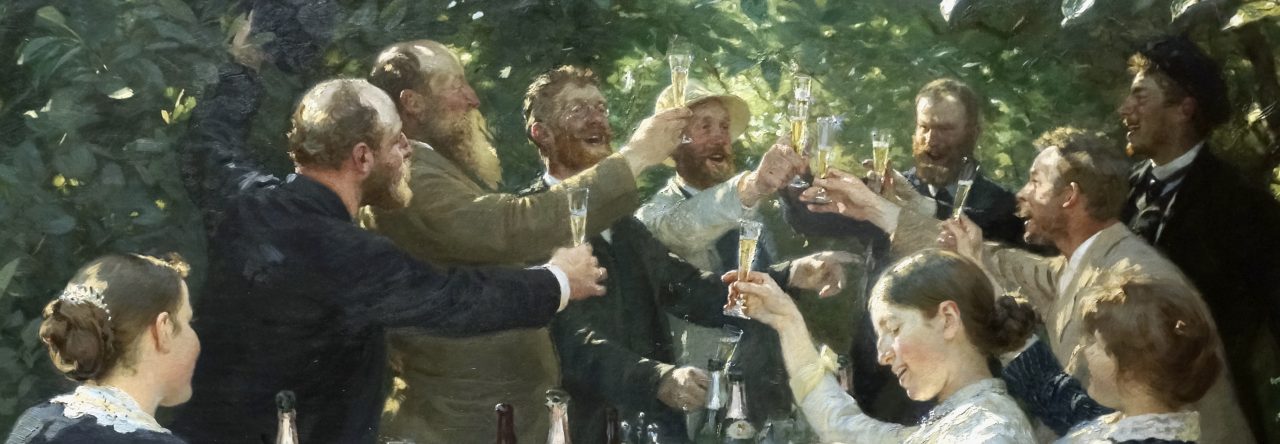Co-ordinators: Deborah Toner, Stella Moss, Thomas Thurnell-Read and Samantha Wilkinson
The ‘Identities and Diversity’ cluster focuses on alcohol’s relationship to the formation, performance, representation and regulation of different identities in historical, contemporary and cross-cultural settings. A substantial body of scholarship in the field of drinking studies has explored how the consumption, marketing, production, regulation and cultural representation of alcohol are intertwined in complex ways with class, gender and generational identities, categories of difference, and boundaries of inclusion and exclusion. Less attention has been paid to alcohol’s relationship with other forms of identity and their intersections. We will especially prioritise the development of emergent lines of enquiry around ethnic, racial, sexual, national, occupational and community identities.
Research within the cluster is likely to focus on:
- Patterns, practices and communities of consumption and/or production
- Emergence and reproduction of norms and stereotypes regarding drinking behaviours
- Implications of such norms/stereotypes for regulation and marketing strategies
- Immigration, diaspora, ethnicity, and nationality
- Professional/occupational drinking cultures and implications for diversi
Bios of coordinators:
Deborah Toner (dt151@le.ac.uk) is an Associate Professor of History at the University of Leicester and Co-coordinator of the Drinking Studies Network. Her research focuses on the social and cultural history of alcohol in the Americas, especially Mexico and the United States. She is particularly interested in cultural representations of alcohol, the emergence and consequences of racial, ethnic, national and class-based stereotypes about alcohol consumption, and discourses of authenticity.
Stella Moss (stella.moss@rhul.ac.uk) is a Lecturer in Modern British History at Royal Holloway, University of London. Her research focuses on the social and cultural history of alcohol in 19th and 20th century Britain. She is particularly interested in experiences and representations of gendered drinking practices, alongside influences of class and ethnicity. She is also interested in the social spaces and material cultures of drinking venues, especially the public house.
Thomas Thurnell-Read (t.thurnell-read@lboro.ac.uk) is Senior Lecturer in Sociology at Loughborough University. His research aims to develop sociological understandings of the ways that social divisions such as gender, social class, age and sexuality are contested and negotiated through contemporary leisure and consumption, particularly in relation to alcohol. His previous research on premarital stag tourism in Eastern Europe has been published in a number of leading journals. More recently, he has conducted research into Real Ale and Craft Beer consumption practices. He has appeared on BBC Radio 4’s Thinking Allowed programme on three occasions, discussing drinking and masculine embodiment, the occupational identities of real ale brewers and the drinking practices of real ale enthusiasts in January 2012, March 2015 and June 2016 respectively. He is the editor of Drinking Dilemmas: Space, Culture and Identity which was published in December 2015 by Routledge as part of the British Sociological Association’s Sociological Futures books series.
Dr Samantha Wilkinson (Samantha.wilkinson@mmu.ac.uk) is a Senior Lecturer in Childhood and Youth Studies. Samantha is an interdisciplinary researcher with a background in Human Geography. Her research has explored the centrality of friendship, care, intergenerational relationships, and atmospheres of music and lighting to young people’s alcohol consumption practices. Samantha has written extensively about her experience of utilising innovative qualitative methods in the context of researching into young people’s drinking. She is currently devising participatory research into the alcohol consumption practices and experiences of young people in Gypsy, Roma and Traveller communities in Northwest England, with a focus on inclusion and exclusion; im/mobilities; and the role of more-than-human actants.
